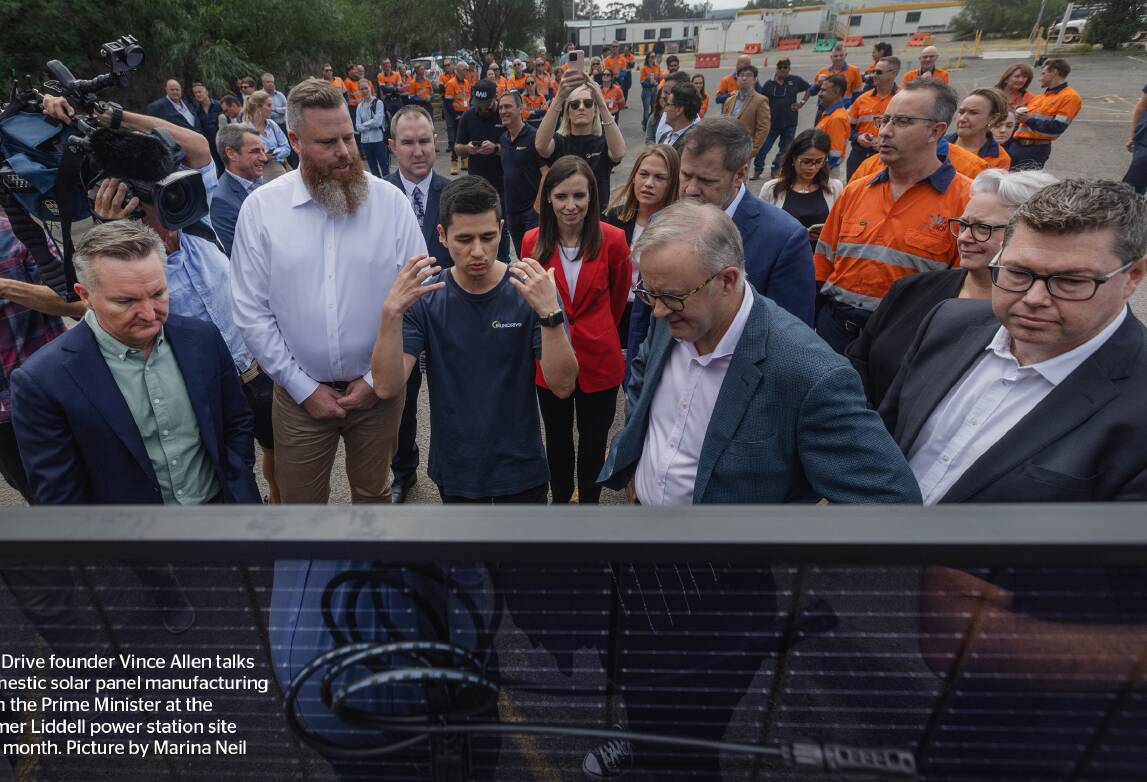
There is good reason for the Hunter to welcome the Australian Government's Future Made in Australia Act.
This needs to be followed up with sizeable investment in policy, coordination, and support for existing industries to make the shift.
Independent think tank Beyond Zero Emissions (BZE) has been strongly advocating for this, and will be following the federal budget to see these promises made good for places such as the Hunter.
With announcements such as the Net Zero Authority and Solar Sunshot, being made with Liddell power station as a backdrop, it's clear the government sees the Hunter as the electric motor of the Australian economy.
The next generation of clean technology will be built on the back of our rich tradition of expertise in energy and mining. This announcement signals meaningful investment in the infrastructure needed for our existing heavy industries to move to renewables. The Hunter is one of the best locations in Australia for industrial clusters to support the shift to renewables, and lead the way in making products for the global clean economy.
The Hunter is leading more than an energy transition. Manufacturing here can lead Australia from a "dig and ship" economy to "mine and make" with critical clean technologies such as batteries, solar and wind.
It's a major structural and strategic change that will see Australia begin to capture more value from the raw materials that we currently dig and ship to the world. For raw materials, such as lithium, Australia produces half the world's lithium, but we capture less than 4 per cent of the battery value. The global lithium value chain is estimated to be worth $1.25 trillion a year by 2030 and $1.9 trillion by 2035. Currently we capture less than 1 per cent. Australia is leaving far too much value on the table. A future made in Australia must address this.
The Hunter is leading this structural change. Energy Renaissance's customised high-temperature and high-performance batteries are 97 per cent Australian made, and the company is working towards making battery cells to create a full Australian batteries supply chain. At Liddell, AGL has signed an MOU with Sundrive to provide offtake. This means the solar panels made by Sundrive will have the advantage of being distributed and installed by AGL.
There are also opportunities to take part in the wind supply chain. This week, at the University of Newcastle, Climate and Energy Minister Chris Bowen announced $3 million funding for the university to research low carbon steel specific for Australia iron ore using green hydrogen and other innovative processes. Mr Bowen was clear that the Hunter industries and community could benefit from supporting an offshore wind industry.
Two of the six shortlisted ARENA funded Hydrogen Headstart projects are local - Port of Newcastle and the Hunter Valley Hydrogen Hub. These projects can help local industry decarbonise in the short term. Over time, they can secure the long-term energy relationships we have with countries such as Japan and Korea, ensuring the Hunter remains a major global energy hub.
Hydrogen and manufacturing is underpinned by the need for renewable energy. Communities in regional Australia, such as the Hunter, must benefit from the investment in renewable energy. Communities must also benefit from investment in manufacturing the technology and energy assets we need to deploy. This structural shift is a once-in-a-generation opportunity to build high-paid careers in regional Australia, and this latest announcement puts skilled regional workers at the centre of our clean energy future.
BZE research shows that we already have Australian companies doing some manufacturing onshore, and we can boost this and coordinate so we're making the most of our natural advantages. We can set up communities to capitalise on our critical minerals by making solar panels, wind turbines with recyclable blades, batteries, heat pumps and parts for electric vehicles.
BZE is calling for a suite of measures in the federal budget, including investment in national coordination, production credits and equity funding in strategic clean technologies to catalyse onshore manufacturing.







